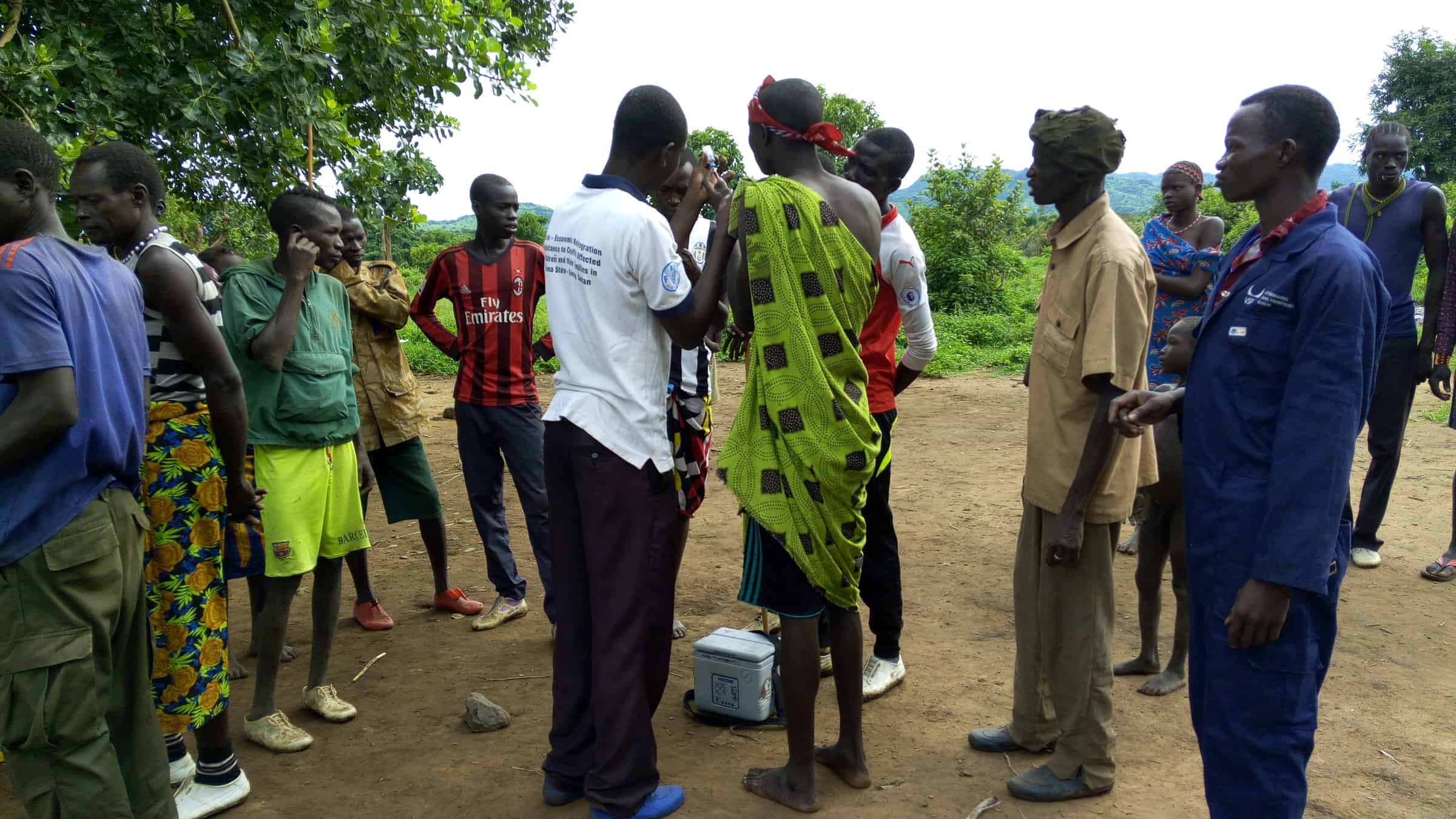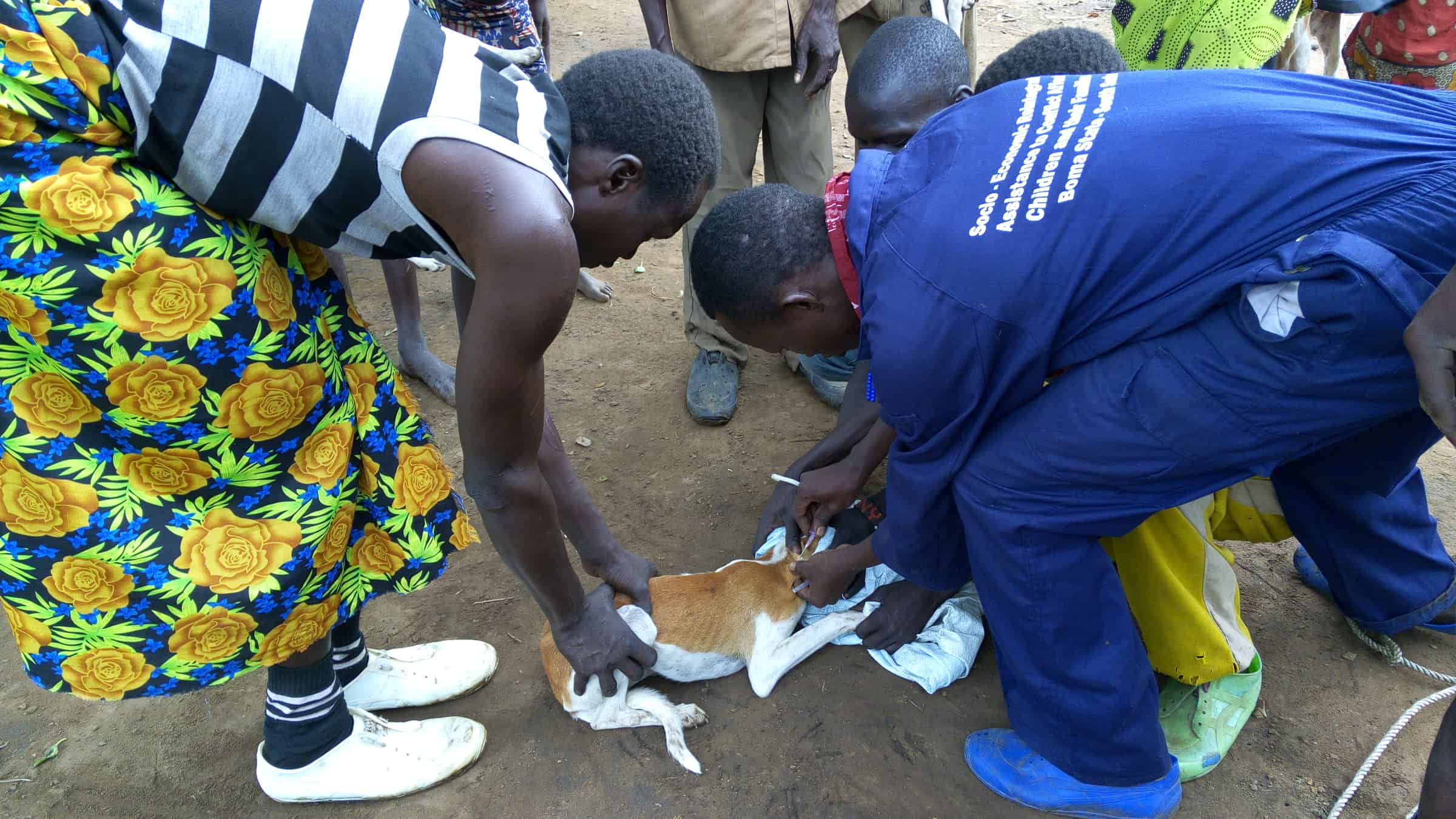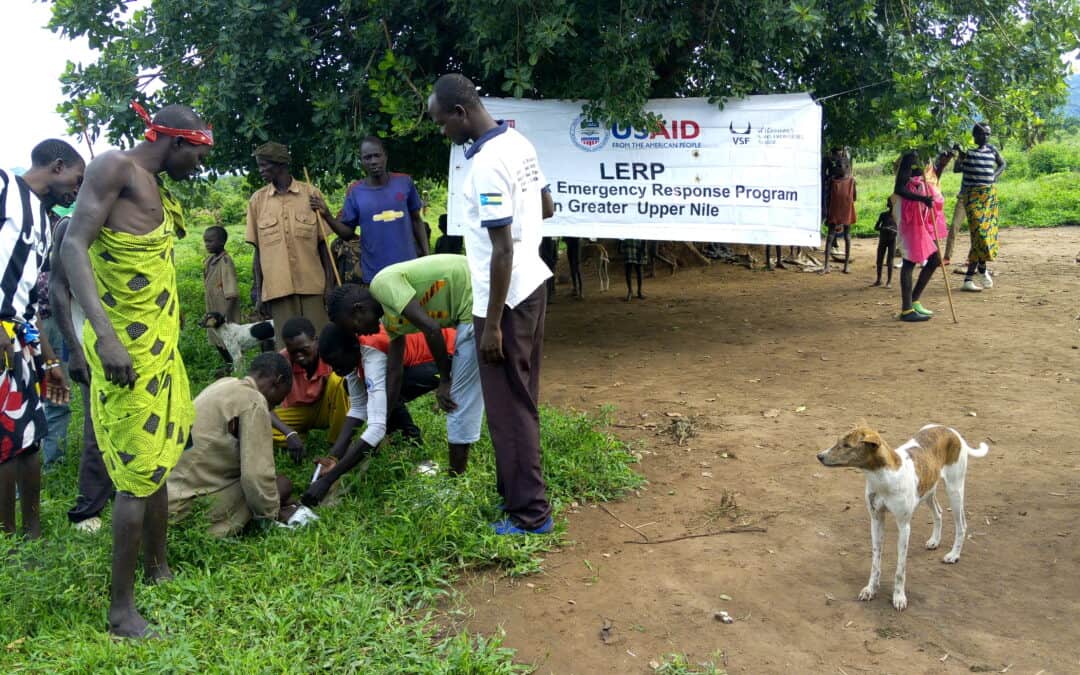In the five years since the adoption of the United Nations’ 2030 Agenda and its Sustainable Development Goals (SDG), many stakeholders have taken innovative steps towards implementing this ambitious global framework. Following a call for submissions of good practices, success stories and lessons learned in the implementation of the 2030 Agenda and the SDGs, the UN Department of Economic and Social Affairs (UN DESA) received and reviewed almost 700 submissions from governments, UN system entities and other international organizations. We are happy to announce that our contribution regarding the topic of Community Animal Health Workers in South Sudan, developed by Sara Imbach of VSF-Suisse, Martin Barasa of VSF Germany and Margherita Gomarasca of VSF-International, has been chosen for publication!
Community-Based Animal Health Workers (CAHWs): Guardians for quality, localized animal health services in hard-to-reach livestock production systems
In conflict-ridden South Sudan more than half of the population depends on livestock for survival. Public veterinary services infrastructure is dilapidated, access to animal health services severely constrained and endemic diseases of economic importance cause heavy losses to livestock producers. We promote the Community-based Animal Health Workers (CAHW) model as a cost-efficient and locally available option to offer access to quality animal health services. The practice contributes to protect key livelihood assets and to grant access to food of animal origin, hence improving food, nutrition and income security of vulnerable populations.
A research carried out by FAO in 2016 found that CAHWs were the preferred animal health service providers in South Sudan due to the superior accessibility, availability, affordability and quality of their services. In many places and not least due to the ongoing crisis, CAHWs are even the only available form of animal health service.
Their proven impacts include:
– reduced number of disease outbreaks,
– reduced mortality of sick animals and mortality during crises,
– increased productivity, milk production and fertility of animals,
– secured income of farmers through the sale of milk and animals in good health,
– Improved food security and nutrition of livestock keeping communities,
– better management of animal health, animal welfare and safety/hygiene of animal-sourced food.
The CAHW system has proven to be a viable model for animal health services delivery, especially in fragile or remote areas with no stable public services delivery systems. Its implementation entails a very robust community participation that enhances its acceptance, usability and replicability. The practice registered a major breakthrough when it was deployed in the successful Rinderpest eradication program in South Sudan.
For the complete text visit: https://sustainabledevelopment.un.org/partnership/?p=29469
Impressions of CAHWs at work in South Sudan. © VSF-Suisse





